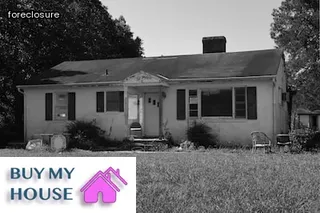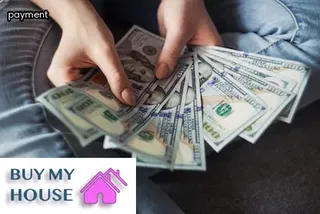It is important for homeowners to understand pre-foreclosure and what it means for their financial future. Pre-foreclosure can be a difficult situation to navigate, so it is important to understand all of the potential outcomes and options that are available.
Pre-foreclosure occurs when a homeowner has not made their mortgage payments on time, and lenders have begun the process of foreclosure proceedings. In this type of situation, homeowners may still be able to keep their home by catching up with their payments or entering into an agreement with their lender.
Additionally, there are other options such as refinancing, loan modification, or short sale that may allow homeowners to avoid foreclosure altogether. It is essential for homeowners in pre-foreclosure situations to stay informed and actively work with their lender to find the best solution.
It is also important to seek legal advice if needed in order to ensure that rights are protected throughout the process. Knowing what steps need to be taken can help make a difficult situation more manageable.

When it comes to understanding preforeclosure and foreclosure, there are many differences that homeowners should be aware of. It is important to understand the difference between the two processes in order to make informed decisions about their home.
Preforeclosure is the period of time before a homeowner begins the foreclosure process. During this period, lenders may work with borrowers to modify loan terms or come up with a repayment plan.
Foreclosure occurs when a homeowner is unable to pay their mortgage or has failed to take steps to resolve the issue. Foreclosures typically involve legal proceedings and can have long-lasting consequences on credit scores and other financial matters.
Homeowners should take advantage of any opportunities offered during preforeclosure such as loan modification or forbearance in order to avoid foreclosure if possible. Knowing the difference between preforeclosure and foreclosure can help homeowners identify options for resolving their financial difficulties in a timely manner and minimize potential damage from foreclosure.
The foreclosure process can be complex and confusing. It's important for homeowners to understand the steps of a foreclosure so they know what to expect and can take action if necessary.
Pre-foreclosure is the first stage of the foreclosure process, when a homeowner has fallen behind on their mortgage payments and the lender initiates proceedings. During this time, homeowners have an opportunity to make up any missed payments and catch up with their mortgage or negotiate alternatives with their lender.
If those options are unsuccessful, then the lender will move forward with repossession of the property through a formal legal proceeding known as a foreclosure sale. This involves auctioning off the property to recover lost funds from unpaid mortgages.
Foreclosures can have serious implications for homeowners' credit scores and ability to obtain financing in the future, so it’s important to understand your rights and responsibilities when dealing with pre-foreclosure.

The best way for homeowners to stay ahead of preforeclosure is to take proactive steps to prevent it from happening in the first place. Regularly monitoring your credit report for any signs of delinquency, making sure to pay all bills on time, and staying on top of your mortgage payments are essential steps that can help protect against preforeclosure.
Homeowners should also consider refinancing their mortgage if they feel they are at risk of defaulting on their loan, as this can give them lower interest rates and more manageable payment terms. Additionally, it is important to be aware of options such as forbearance and loan modification programs, which may allow homeowners to temporarily suspend or reduce their monthly payments while they work towards becoming current on the loan again.
If a homeowner does find themselves facing preforeclosure, they should reach out to a housing counselor for guidance on how best to proceed. Ultimately, by taking these protective measures and seeking professional advice when necessary, homeowners can avoid the stress and financial burden of preforeclosure.
As a homeowner facing pre-foreclosure, taking control of your mortgage payments can be a daunting task. However, understanding the process and knowing what options you have available to you is key to preventing any further problems.
Educating yourself on the foreclosure timeline, talking to your lender, and exploring loan modification and other assistance programs are all important steps in taking control of your mortgage payments. Additionally, it's important to contact an experienced real estate attorney who can help you understand the legal implications of foreclosure and look over any paperwork you may receive from your lender.
Taking these proactive steps can help ensure that you don't fall further behind on payments and give you the best chance at keeping your home.

Pre-foreclosure is a period of time where the homeowner is behind on their mortgage payments and the lender has initiated the foreclosure process, but has not yet taken ownership of the property. It’s important for homeowners to understand the fundamentals of pre-foreclosure in order to remain informed and potentially avoid foreclosure.
During pre-foreclosure, lenders typically reach out to homeowners with options such as loan modifications or repayment plans to bring them current on their mortgage payments. Homeowners should also consider speaking with a housing counselor or attorney for advice about how to navigate this period of time.
Additionally, lenders may offer to purchase the home from the homeowner at a discounted rate through a short sale in order to avoid foreclosure proceedings entirely. Understanding all available options during pre-foreclosure can help homeowners make an informed decision about what path to take while they attempt to remain in their home or end their relationship with the lender on good terms.
When it comes to finding potential homes in pre-foreclosure, the first step is to understand what pre-foreclosure is. Pre-foreclosure is a period of time prior to the official foreclosure process that occurs when a homeowner has defaulted on their mortgage payments and their lender has begun to take action against them.
Homeowners should know that during pre-foreclosure, they still have the opportunity to work out an arrangement with their lender or try and sell the property before it enters into foreclosure. Identifying potential homes in pre-foreclosure requires homeowners to do research and stay informed about current events in their local market.
Homeowners should contact real estate agents who are well versed in buying and selling properties that are in pre-foreclosure, as they can provide invaluable insight into properties that may be available. Additionally, searching online for properties in pre-foreclosure can be beneficial as many lenders list properties at discounted prices before they enter into foreclosure.
Lastly, attending public auctions where lenders sell foreclosed properties can also be helpful for identifying potential homes in pre-foreclosure as these auctions often offer discounts on these types of properties.

Using Zillow to leverage opportunities for pre-foreclosures can be a smart move for real estate investors. The website allows users to search for properties that are in the pre-foreclosure process, meaning that the owner has already defaulted on his mortgage payments and is now facing foreclosure.
With this information, investors can start researching potential investment prospects and contact the owners directly to negotiate a fair sale price. Zillow also provides detailed information about each property, including its estimated market value, current loan amounts owed, and estimated monthly payments.
This data can help buyers determine whether a particular pre-foreclosure is worth pursuing or not. Additionally, Zillow offers assistance with contacting the homeowners through its Property Value Tool, which provides contact info for sellers who may be interested in selling their home before it goes into foreclosure.
By taking advantage of these services provided by Zillow, real estate investors can take full advantage of pre-foreclosure opportunities and potentially gain access to great deals on homes.
Buying a house in pre-foreclosure can be a viable option for potential homeowners who are ready to take on the challenge of finding a great deal and managing the complexities of a pre-foreclosure purchase. Pre-foreclosure is when a homeowner has fallen behind on their mortgage payments and the lender has initiated foreclosure proceedings but the home hasn't yet been sold at auction.
Buying a home in pre-foreclosure can be an appealing prospect for buyers because it means they could potentially get the home at a discounted price. However, there are considerations to keep in mind before entering into this type of transaction, such as understanding what paperwork is needed, having enough cash on hand to make an offer, and being aware that lenders may not accept offers that are too low.
It's important to remember that foreclosures can involve lengthy processes, so it's essential to have patience and persistence when trying to purchase a house in pre-foreclosure. Additionally, working with an experienced real estate agent who understands how pre-foreclosures work is key to ensuring you’re making the right decisions throughout your search and negotiation process.

Bidding wars for pre-foreclosed properties can be a great way to purchase a home at an attractive price, but it is important to understand the process before diving in. Homeowners should understand that the seller may accept a bid from any party, so it is important to ensure that the offer stands out from the competition.
The key to success is identifying pre-foreclosures early on and proposing an offer well before other bidders become aware of the property. Homeowners should research comparable homes in the area and consult with professionals who specialize in pre-foreclosure purchases like real estate agents or attorneys with experience in this field.
Knowing what kind of financing options are available and being prepared with cash or other forms of payment can also give homeowners an edge over competing bids. Finally, having all paperwork ready to go and being prepared to take immediate action when a bid is accepted will show sellers that homeowners are serious about taking ownership of their future home.
Getting ready for a pre-foreclosure can be an intimidating process for homeowners, but having up-to-date information is key to understanding the process. Knowing what pre-foreclosure is and how it works can help homeowners make informed decisions and protect their rights.
It’s important to know that pre-foreclosure is a period of time when a homeowner has missed payments, and the lender has not yet initiated the foreclosure process. Homeowners in this situation may have extra time to pay off debts or attempt to negotiate a loan modification with the lender.
Understanding foreclosure laws in your state, as well as federal regulations, can also be beneficial, as they often vary from state to state. In addition, knowing who owns the loan can give homeowners options for working out a plan with the lender or loan servicer.
Lastly, exploring resources such as government and nonprofit agencies can provide helpful advice or assistance programs that can help reduce debts or save a home from foreclosure. Taking these steps before entering into pre-foreclosure will allow homeowners to feel more confident when dealing with lenders or servicers.

Recently, more and more attention has been given to the pre-foreclosure process. With the rise of this phenomenon, there have been several developments in the field of pre-foreclosures.
One major development is that a homeowner now has more rights when it comes to foreclosure proceedings. This includes the right to receive notice from the lender before any foreclosure action can take place.
Additionally, municipalities are passing ordinances that require lenders to make an effort to keep homeowners in their homes instead of pursuing a foreclosure. Furthermore, certain states are implementing programs designed to help homeowners save their homes from foreclosure through loan modifications and other alternatives.
Finally, non-profits and government agencies are providing assistance to homeowners with financial difficulties by offering counseling services, budgeting advice, and legal protection during pre-foreclosure proceedings. All of these recent developments offer options for homeowners facing pre-foreclosure and provide them with resources they need to understand their situation and make sound decisions about their future.
When a homeowner faces foreclosure, it can be a stressful and difficult time. However, by understanding the foreclosure process and taking advantage of any opportunities that arise during this period, homeowners can use the pre-foreclosure period to their advantage.
Educating themselves on rights and options available to them during this time can help homeowners make decisions that could potentially save their home from foreclosure or at least minimize the damages associated with it. Homeowners should also take advantage of any tax relief or loan modification programs offered by lenders as these may offer some financial relief during the pre-foreclosure period.
Additionally, exploring options such as selling the home in a short sale or working out other arrangements with lenders may help to avoid the foreclosure process altogether. Finally, seeking legal advice from an experienced attorney may be beneficial for homeowners who are going through a pre-foreclosure process as they will have a better understanding of their rights and any opportunities they may have available to them.

Understanding pre-foreclosure is an important step for any homeowner facing foreclosure. During the pre-foreclosure period, homeowners should ensure their rights and obligations are met in order to protect themselves and their property.
Homeowners have the right to receive written notice of a foreclosure, which must be served by the lender or its agent and include the name of the lender and its contact information, as well as a description of what has been done to trigger the foreclosure. A homeowner’s obligations during this time may include attending court hearings related to filing for bankruptcy or working with lenders on loan modification agreements.
Homeowners should also seek advice from an attorney about their legal rights in order to protect themselves from potential financial losses associated with foreclosure proceedings. It is important for homeowners to remember that they are not alone when it comes to understanding pre-foreclosure - there are resources available that can help them navigate this difficult process.
If you're a homeowner facing pre-foreclosure, it is important to understand what actions can be taken to get the pre-foreclosure off your credit. The first step is to make sure your lender is aware of your situation and that you are working with them on a solution.
It may be possible to negotiate with the lender and come up with an alternative payment plan or loan modification that allows you to keep your home and bring the loan current. If this isn’t possible, there are other options such as a short sale or deed in lieu of foreclosure, which can help prevent long-term damage to your credit score.
You should also consider speaking with a housing counselor or financial advisor who can provide additional guidance on how best to approach the situation and work toward getting the pre-foreclosure off your credit.

The first step in the foreclosure process is typically a Notice of Default (NOD) from the mortgage lender. The NOD is usually sent to the homeowner once they have missed two or more payments on their mortgage.
Once the NOD is issued, the homeowner has three to four months to bring the loan current and stop the process by paying all past due amounts, including penalties and interest. If the homeowner cannot pay off their debt within that time frame, then the mortgage lender may begin proceedings towards taking possession of their home through a foreclosure auction.
It's important for homeowners to understand that they do not need to wait until they receive an NOD before taking action; there are many options available in order to avoid foreclosure even before it becomes imminent.